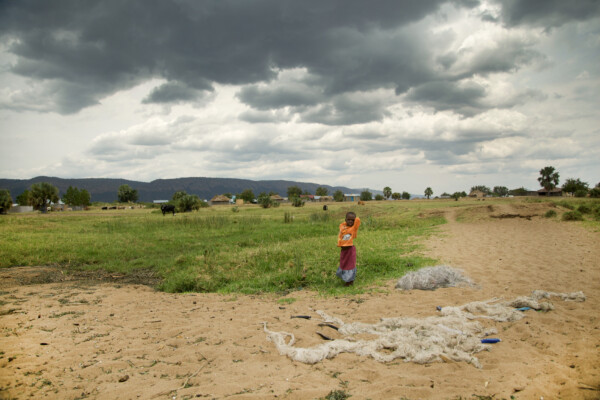
Business, Human Rights, and Uganda’s Oil. Part I: Uganda’s oil sector and potential threats to human rights
July 12, 2013The following report is the first of a series of four collaborations between IPIS Research and ActionAid International Uganda. The series sheds a light on the oil sector in Uganda, its possible impact on human rights, and how government, companies, and civil society can best enable a positive bond between oil and the welfare of the Ugandan people. This first report opens by providing a situational

Upstream Implementation of the OECD Due Diligence Guidance for Responsible Supply Chains of Minerals from Conflict-Affected and High-Risk Areas. Final Report on one-year pilot implementation of the Supplement on Tin, Tantalum, and Tungsten
January 1, 2013Final Report on one-year pilot implementation of the Supplement on Tin, Tantalum, and Tungsten. This report is the final in a cycle of three reports on the pilot implementation by upstream companies of the “Supplement on Tin, Tantalum and Tungsten of the OECD Due Diligence Guidance for Responsible Supply Chains of Minerals from Conflict-Affected and High-Risk Areas”. The goal of the report is to p

Upstream Implementation of the OECD Due Diligence Guidance for Responsible Supply Chains of Minerals from Conflict-Affected and High-Risk Areas. Cycle 2 Interim Progress Report on the Supplement on Tin, Tantalum, and Tungsten
June 20, 2012Cycle 2 Interim Progress Report on the Supplement on Tin, Tantalum, and Tungsten. The following report is the second in a cycle of three on upstream companies’ implementation of the Supplement on Tin, Tantalum and Tungsten to the OECD’s Due Diligence Guidance for Responsible Supply Chains of Minerals from Conflict-Affected and High-Risk Areas. The objective of the following is to report on progres
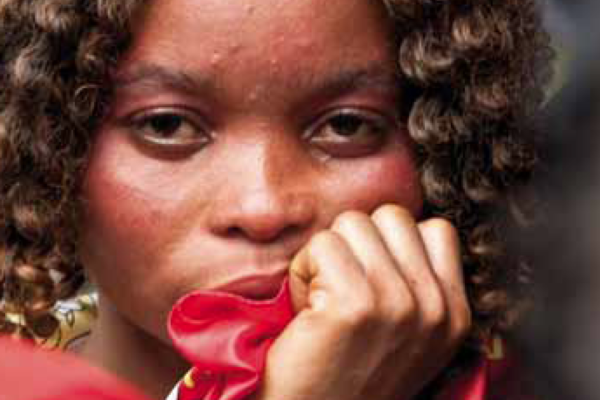
Violence against women in Eastern Democratic Republic of Congo. Whose responsibility? Whose complicity?
November 1, 2011IPIS contributed to the research for and writing of this ITUC report. Summary: Eastern DRC has been ravaged by war and violence since the mid-1990s. Civilians carry the greatest burden of the conflict. Women and girls are especially vulnerable to such attacks. Hundreds of women and girls get sexually violated in their homes and at their workplace. Fuelled and motivated by Congo’s minerals, rebel a

Upstream Pilot Implementation of the OECD Due Diligence Guidance for Responsible Supply Chains of Minerals from Conflict-Affected and High-Risk Areas
November 1, 2011Baseline Report on the Supplement on Tin, Tantalum, and Tungsten IPIS executed the research for and the writing of this OECD report. The present baseline report is the first in a cycle of three reports on the implementation by upstream companies of the Supplement on Tin, Tantalum and Tungsten of the OECD Due Diligence Guidance for Responsible Supply Chains of Minerals from Conflict-Affected and Hi
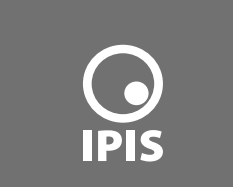
An analysis of Finexpo’s and Ducroire/Nationale Delcrederedienst’s support practices in comparison to the EURODAD principles on responsible financing
April 24, 2009In 2007, Belgian exports generated 89,3% of Belgium’s gross domestic product. The exports created employment as well as fiscal and parafiscal revenues. Because of the importance that exporting holds in the Belgian economy, Belgium has several public instruments in place to encourage and support the export of goods and services. At the federal level, there are Ducroire/Nationale Delcrederedienst (O
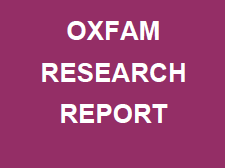
Towards a Sustainable Cocoa Chain: Power and possibilities within the cocoa and chocolate sector
December 25, 2008This report contributes in various ways to the debate on a sustainable cocoa economy. A sustainable cocoa economy is where each person investing time or money into the supply chain would be able to earn a decent income for themselves and their family, work in good conditions, and in a manner which did not harm the environment. It provides an overview of the various stakeholders in the cocoa and th
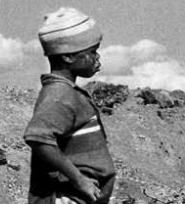
From conflict resources to sustainable development
July 23, 2008Memorandum by Fatal Transactions on the European Union’s contribution to natural resource management in Africa This Memorandum looks specifically at the European Commission’s contribution to a sustainable exploitation of natural resources in Africa and a sustainable supply chain. It also assesses its approach on conflict resources. The paper provides an analysis of the Commission’s trade policy, d
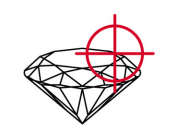
Fatal Transaction’s second submission on EIB Statement of Environmental and Social Principles and Standards
June 23, 2008Fatal Transactions supports the initiatives of the European Investment Bank to revise its “Statement of Environmental and Social Principles and Standards”. We applaud the realisation of this revision in an open and transparent consultative process. This has without any doubt positively contributed to the revised draft Statement that has been presented by the Bank on 1 October 2008. Download in pdf
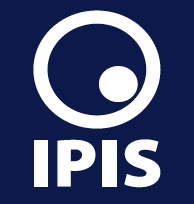
Transacties van de Nationale Delcrederedienst onder de loep. Een overzicht van enkele cases
March 25, 2008Ieder land heeft het soevereine recht om projecten en werken op zijn grondgebied goed te keuren, rekening houdend met de effecten (positieve b.v. economische belangen of negatieve effecten b.v. schadelijke gevolgen voor het leefmilieu) ervan. Een buitenlands bedrijf moet bij zijn deelname aan dergelijke activiteiten rekening houden met bepaalde voorwaarden. Deze kunnen zowel worden geregeld in de
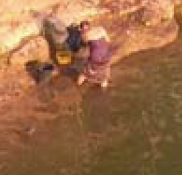
A Practical Guide about the International Human Rights Frameworks and how Business fits into it
March 17, 2008This guide provides business enterprises an overview of the international human rights frameworks. It also uses the Human Rights Compliance Assessment tool created by the Danish Institute for Human Rights. It should be used as a tool for businesses and does not absolve them from not working out detailed principles for the specific sector which they are operational. It is imperative for business ma
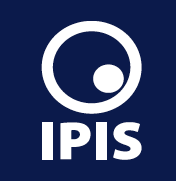
Het milieu- en sociaal beleid van exportkredietverzekeringsmaatschappijen. Een vergelijkende analyse
March 14, 2008De Nationale Delcrederedienst, een Belgisch overheidsbedrijf, verzekert bedrijven tegen politieke en commerciële risico’s van internationale handelstransacties, onder andere met betrekking tot kapitaalgoederen, industriële projecten, aannemingswerken en diensten. In vele landen, zowel Westerse als ontluikende landen, kunnen bedrijven genieten van soortgelijke overheidssteun. De goedkeuring van der
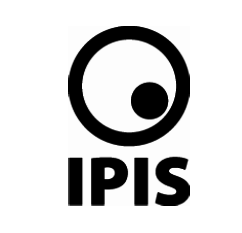
Het beleid van exportkredietverzekeringsmaatschappijen
October 28, 2007De privé-sector is veruit de belangrijkste motor van de wereldeconomie en bedrijven kunnen in belangrijke mate bijdragen tot de socio-economische stabiliteit van een regio of land, hebben de capaciteit om te zorgen voor technologische overdracht en kunnen welvaart genereren. Daarnaast is er een groeiende erkenning dat ze kunnen bijdragen tot conflictpreventie en duurzame vredesopbouw. Tegelijkerti
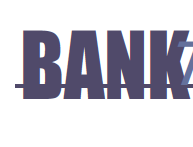
Human Rights, Banking Risks. Incorporating Human Rights Obligations
March 17, 2007This report was written on behalf of BankTrack . BankTrack released the following press release at the UN consultation on February 16, 2007. See more: www.banktrack.org “Financial institutions can play an important role in promoting human rights, as well as respecting them by preventing or minimizing the social and environmental harm that may be caused by their transactions. Too often, Banks are c

A long road towards universal protection
January 17, 2007Natural disasters and armed conflict tend to trigger humanitarian action, to trace missing persons, re-establish contact and reunite families whose flight for safety tore them apart. Humanitarian organisations also help identify victims, and register and visit those taken prisoner, to avoid their disappearance. Download in pdf or open with issuu reader. http://issuu.com/ipisresearch/docs/20070115

Basisindicatoren Latijns-Amerika
May 17, 2006Bij de programma’s voor de volgende meerjarenperiode, verwacht men van NGOs contextanalyses. Om hen te ondersteunen bij het opstellen van die analyses bracht het Latijns-Amerika Overleg van de sector informatie samen over de trends die zich aftekenen in de 16 landen van Latijns-Amerika en Caraïben waar Vlaamse NGOs actief zijn.1 In referentiewerken, databanken en andere open bronnen werd gezocht n
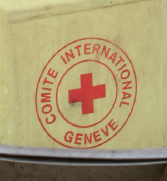
Verweer tegen gedwongen verdwijning
January 11, 2006Publicatie An Vranckx in: Internationaal Humanitair Recht in de kijker. Dit is de naam en de doelstelling van de publicatie van Rode Kruis-Vlaanderen ter promotie van het internationaal humanitair recht. Hiermee loopt dit tijdschrift in de voetsporen van ‘Zoeklicht’ dat van 1991 tot 2004 zijn licht liet schijnen over de laatste trends en ontwikkelingen in het internationaal humanitair recht. Inter

HIV/AIDS. De ziekte die spot met ontwikkelingsdoelstellingen (142)
June 10, 2004In dit dossier schetst Ariane De Lannoy hoe HIV/AIDS knaagt aan de randen van samenlevingen in de derde wereld. Ze concentreert zich daarbij op de gevolgen van de ziekte voor onderwijs, de pijler die door velen wordt beschouwd als een essentiële factor in het ontwikkelings- en democratiseringsproces van een land. Door middel van een gevalstudie omtrent de impact van de pandemie op het ontwikkeling

Verkrachting als oorlogswapen (139)
January 10, 2004Nog niet zo lang geleden woedden in Rwanda en Bosnië, twee landen die nochtans geografisch sterk gescheiden zijn, conflicten die een aantal kenmerken gemeen hadden: het systematisch wrede en genocidaire karakter ervan en het enorme aantal vrouwen die werden verkracht en/of seksueel misbruikt. Tot voor kort ging er weinig speciale aandacht naar het verschijnsel “seksueel geweld in gewapende conflic

Medicijnen voor iedereen?
June 10, 2003Een brandend actueel dossier, getuige de vele persartikels die recent verschenen omtrent het in augustus 2003 goedgekeurde WTO-akkoord dat de toegankelijkheid van medicijnen voor het arme zuiden zou moeten verbeteren. Het zoeken naar een mogelijkheid om ook voor de armsten in deze wereld toegang te creëren tot medicijnen, is een vraagstuk dat reeds lang op een antwoord wacht en dat pijnlijk duidel

